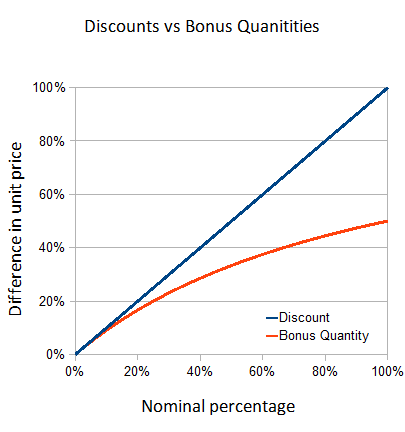
Bonuses vs. discounts: which loyalty program to choose?
Bonuses and discounts are two popular types of loyalty programs that businesses offer to reward their customers. Both options have their merits, but deciding which program to choose can be a challenging task. In this article, we will explore the benefits of each approach to help you make an informed decision.
Bonuses are a common feature of many loyalty programs. They typically involve earning points or credits for every purchase made, which can later be redeemed for various rewards. These rewards can range from exclusive merchandise and freebies to discounts on future purchases.
Bonuses provide customers with a sense of progress and achievement as they accumulate points over time.
One of the advantages of bonuses is their flexibility. Customers can choose how and when to redeem their points based on their preferences and needs. They have the freedom to save up their points for bigger rewards or use them immediately for smaller benefits.
This flexibility allows for a personalized experience, catering to the individual tastes and desires of each customer.
Furthermore, bonuses often come with additional perks such as exclusive access to special events, early product releases, or personalized recommendations. These additional benefits make customers feel valued and appreciated, fostering a stronger bond between them and the brand. By offering bonuses, businesses can incentivize repeat purchases and cultivate a loyal customer base.
On the other hand, discounts are another popular approach to loyalty programs. These programs typically involve providing customers with reduced prices or special offers on products or services. Discounts can be immediate, such as a percentage off at the time of purchase, or cumulative, where customers receive a discount after a certain number of purchases.
One of the main advantages of discounts is their immediate impact on customers' wallets. People are often motivated by the prospect of saving money, and discounts provide an immediate financial benefit. By offering discounts, businesses can attract price-conscious customers who prioritize immediate savings over long-term rewards.
Discounts can also be an effective way to drive sales and increase customer loyalty. When customers see the value in discounted prices, they are more likely to make repeat purchases. Additionally, discounts can be used strategically to target specific products or services that businesses want to promote.
By offering a discount on a particular item, businesses can generate interest and encourage customers to try new products.
While discounts offer tangible benefits, they can have some limitations. For instance, constant discounting may erode a brand's perceived value or devalue its products or services. Customers may become conditioned to expect discounts and delay purchases until a discount is available.
This can create a pricing dilemma for businesses, as they need to balance attracting customers with maintaining profitability.
In conclusion, both bonuses and discounts have their advantages when it comes to loyalty programs. Bonuses provide flexibility, personalization, and additional perks, fostering a strong bond between customers and the brand. On the other hand, discounts offer immediate financial benefits and can drive sales.
Ultimately, the choice between bonuses and discounts depends on the goals and preferences of both businesses and customers. It is essential to carefully consider the target audience and the desired outcomes when designing a loyalty program to maximize its effectiveness.

